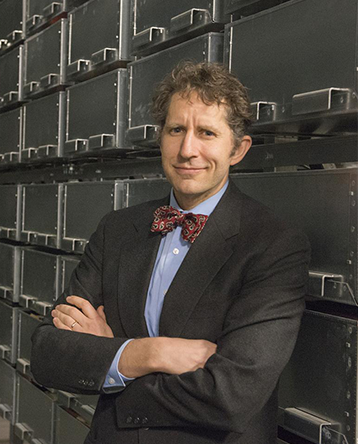James Evans
Co-Lead, National Network for Critical Technology Assessment
Professor, Department of Sociology, University of Chicago
Co-Lead, National Network for Critical Technology Assessment
Professor, Department of Sociology, University of Chicago

James Evans’ research focuses on the collective system of thinking and knowing, ranging from the distribution of attention and intuition, the origin of ideas and shared habits of reasoning to processes of agreement (and dispute), accumulation of certainty (and doubt), and the texture—novelty, ambiguity, topology—of understanding. He is especially interested in innovation—how new ideas and practices emerge—and the role that social and technical institutions (e.g., the Internet, markets, collaborations) play in collective cognition and discovery. Much of his work has focused on areas of modern science and technology, but he is also interested in other domains of knowledge—news, law, religion, gossip, hunches, machine and historical modes of thinking and knowing. He supports the creation of novel observatories for human understanding and action through crowd sourcing, information extraction from text and images, and the use of distributed sensors (e.g., RFID tags, cell phones). He uses machine learning, generative modeling, social and semantic network representations to explore knowledge processes, scale up interpretive and field-methods, and create alternatives to current discovery regimes.
His research has been supported by the National Science Foundation, the National Institutes of Health, the Air Force Office of Scientific Research, and many philanthropic sources, and has been published in Nature, Science, Proceedings of the National Academy of Science, American Journal of Sociology, American Sociological Review, Social Studies of Science, Research Policy, Critical Theory, Administrative Science Quarterly, and other outlets. His work has been featured in the Economist, Atlantic Monthly, Wired, NPR, BBC, El País, CNN, Le Monde, and many other outlets.
At the Umiversity of Chicago, Evans is the director of Knowledge Lab, which has collaborative, granting, and employment opportunities, as well as ongoing seminars. He also founded and now directs the Computational Social Science program at Chicago, and sponsors an associated Computational Social Science workshop. He teaches courses in augmented intelligence, the history of modern science, science studies, computational content analysis, and Internet and Society. Before Chicago, he received his doctorate in sociology from Stanford University, served as a research associate in the Negotiation, Organizations, and Markets group at Harvard Business School, started a private high school focused on project-based arts education, and completed a B.A. in anthropology at Brigham Young University.